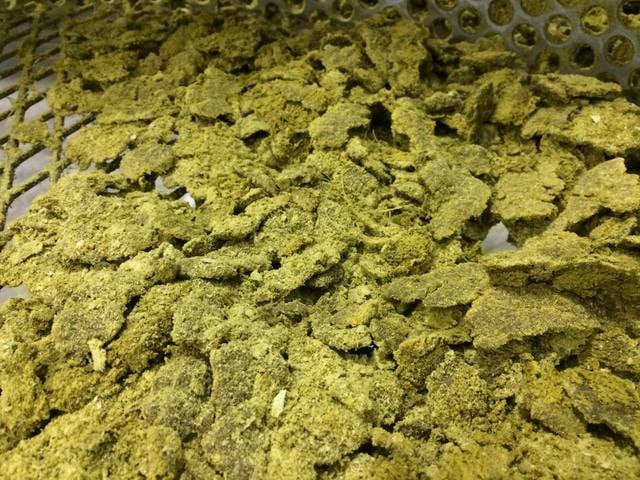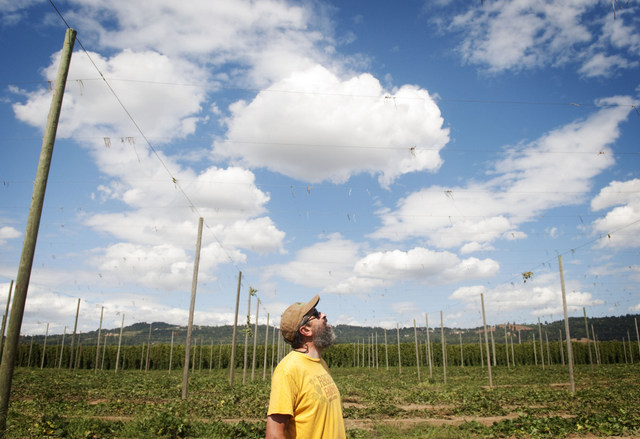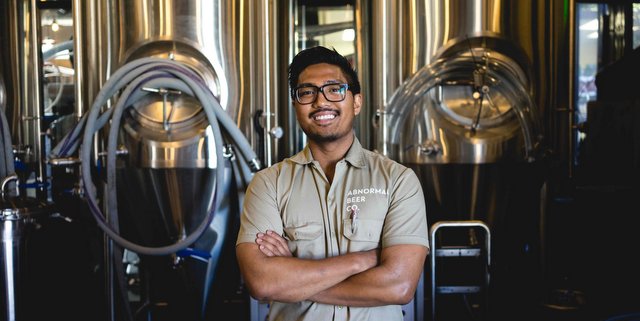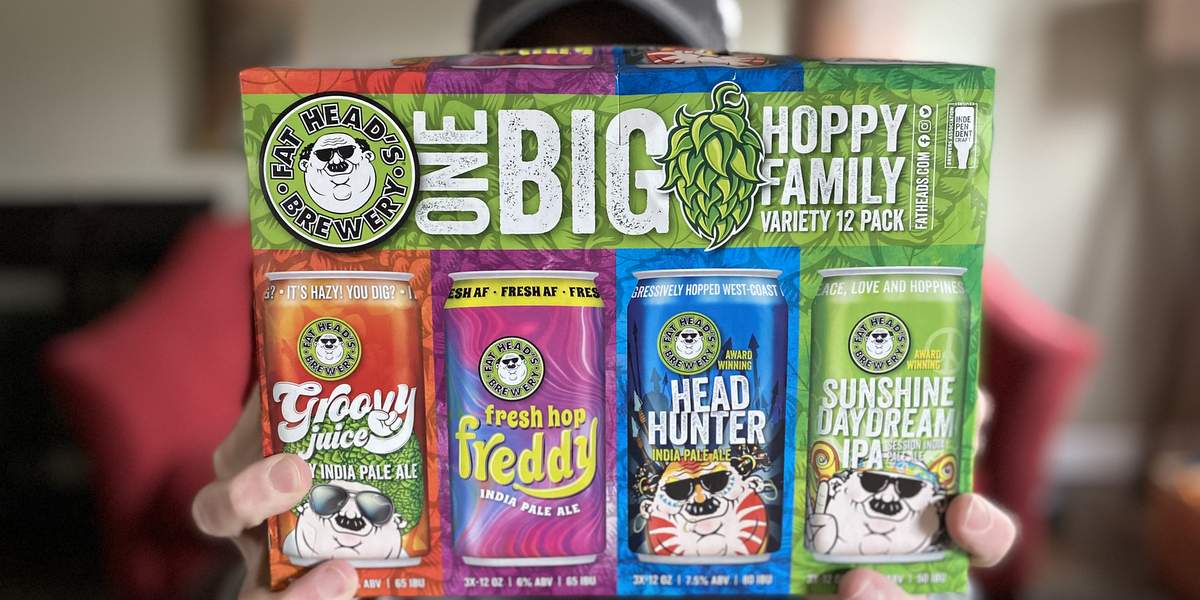
While German beer makers were the first brewers to start using wild hops in the early 8th century, it’s been American innovators who have taken both hop production and hop-infused beers to new levels of innovation and flavor. Rewind to 1909 and marvel at the mechanical hops separator, patented by Emil Horst in Elk Grove, Calif. (ok, he did emigrate from Germany). He revolutionized hop growing and processing with his patented mechanical separator that harvested the hops while discarding the vines and leaves.
Since the 1930s, Oregon State University (OSU) has been a global hot spot for hop research in North America. The U.S. government, OSU and some very talented minds have literally generated millions of acres of research on hop varieties, producing engineering icons like Dr. Al Haunold (who is credited with some 20 varieties of hops, including Cascade, which is a cornerstone in today’s craft brewing industry).
That’s just two examples.
Today, American craft brewing pioneers have taken up the torch for innovative hop usage. A forward-hops taste (and the IPA category of beer) is almost a hallmark of U.S. craft beers, but how exactly do brewhouses produce those unique hoppy flavors? How do they get the hops to make that amazing beer, and what are the latest techniques and innovations changing the hop and beer industry? We decided to ask the experts, and below they shared their insights on everything from flexible contracts to hydroponic farming.
The evolution of hop hash

Michelle Palacios, marketing coordinator
Crosby Hop Farm (Woodburn, Ore.)
For more than 115 years, Crosby Hop Farm has been growing great hops, producing the beautiful green flowers of the female hop plant. Although we are hop growers, in actuality we are lupulin gland growers. The lupulin glands of the hop flower are filled with golden hop oils which create the aroma and flavor that is synonymous with beer. Once our hops are picked, more than 80 percent are processed into hop pellets. The milling process includes breaking apart the whole bale, grinding the hops into a powder and then pressing the powder through a die to make a pellet. A small amount of lupulin collects on the screens as the powder passed through on its way to the pellet die. It pained us to watch the pure hop goodness be scraped and sent to compost, hence the evolution of “hop hash” began.
At Crosby Hop Farm, we have seen the interest in hop hash continue to increase since we started offering the product just two harvests ago. More brewers are working with the product, and in-turn we are receiving more feedback about the powerful statement it imparts in the beer. The hop hash is often added late in the whirlpool, just before knock out to fully capture the hop aromatics. It leads to an intense hop experience, a true explosion of flavor. We have instituted a rigorous quality control program for hop hash that includes metal detection and hand sorting. Hop hash is variety specific and extremely volatile, so it is immediately packaged into the same mylar packaging as our pellet and leaf products to maintain brewing quality. What once was a pellet mill waste product has become a unique and potent brewing tool.
Protect your hop yards this winter

John Maier, brewmaster
Rogue Ales & Spirits (Newport, Ore.)
Come to Rogue Farms this winter, and you’ll see an empty looking hop yard with nothing but poles and wires. Don’t be fooled. The real action is taking place under the soil in the rhizomes. Whether you’re a hop farmer like Rogue Farms, or if you grow hops at home, it’s important to protect your rhizomes this time of year. After harvesting, a hopyard still needs care and tending to prepare it for winter and spring. Here are our winter tips for growing your own hops:
- Cut back your bines after the first frost. Let them soak up as much sun as possible.
- Once you’ve cut them back, cover the crowns with at least five inches of mulch or straw. We use leftover bines and coir. This protects rhizomes from freezing temperatures.
- This is a good time for trellis repairs. At Rogue Farms we replace or fix aging poles and wires. If don’t have a trellis, we suggest buying one or building your own before spring growth begins. Get one at least 10 feet tall.
- A good way to grow your garden is by splitting the rhizomes you already have. January and February are the best months for that. Dig around the rhizomes and cut them into lengths of 3 to 4 inches, making sure each piece has lots of buds. Place them vertically in pots with the top just below the surface of the soil. Bring them indoors and plant next spring.
Growing your own hops, even a small patch, is a great way to learn about this amazing plant that gives beer such wonderful flavor, aroma and bitterness. Join us and grow your own revolution.
Know the farmer, find the best product

Dan Kopman, co-founder
Schlafly Beer (St. Louis, MO)
Like any consumer who wants to know where their food or drink comes from, I’m a brewer who wants to know where our hops come from and who grows them. For many brewers, hops are simply 44 pounds of pelletized flavor and aroma, sealed in a protective foil and sturdy box. For farmers, hops are a winter of hard field work, a spring of hope, a summer of unpredictable rain, and a fall of harvest worry. As a 21-year-old trainee brewer, Ken Don, the retired head brewer at Young’s in London, introduced me to hop farmers in Kent. When I married a Scottish barley farmer’s daughter, I learned that a brewer is a drinks manufacturer, and a hop farmer may also grow other products such as grapes, raspberries or mint.
The more a brewer learns about farming, hop farming in particular, the more they will know about the challenges in growing that hop and the qualities to look for in a great grower, which will make better, more profitable beer. Both farmers and brewers care about the quality of hops. Both care about price, albeit with contrasting emotions. Beyond these important factors their worlds diverge. Selling beer is points of distribution for your beer multiplied by the rate of sale. Selling hops is acres multiplied by yield per acre. Both have capital and variable input costs. Our rate of sale is their yield per acre. Brewers should sell beers that have the highest rate of sale; farmers the hops that yield the most per acre. It doesn’t always work that way, but the more we communicate directly, the more we can achieve our unique and mutually shared goals.
We visit the farms and take part in the harvest — rubbing and sniffing a whole leaf sample to select hop varieties for our year-round beers to seasonal releases. Through our Hop Trial program at Schlafly Beer, we brew single malt, single hop beers with the hops such as Summer, Azacca, and more. It showcases the nuances of the hop varieties to the consumers, and lets us tell the story of the farmers. We could just wait for the box of pellets to arrive and chances are, it will be exactly what I want — but I would rather have visited the farm and shared a beer with the farmer who grew the hops that made the beer what it is.
Picking what you want in a hop is so important

Tim Hawn, brewmaster
Dogfish Head Craft Brewery (Milton, Del.)
With the high demand for hops these days, brewers need to be cognizant of all that goes into hop selection — predictions of what is needed for the next few years, staying up-to-date with what’s new in the world of hop breeding and development and even contracts. So what’s that mean for us as brewers? First of all, contracts. I would recommend that everyone consider some sort of contracting with a great hop broker or farmer direct, if you can swing it.
Another thing, make sure you understand if you are going to be able to select your particular hop variety. As a small brewer, you may have to select and get processed with another brewer’s lot, but picking what you want in a hop is so important to the quality of our beer. Understand what the hop is doing from a planting side. The USDA publishes these reports, and they are accessible to all. With this you can tell if acreage is increasing, going down, etc., arm yourself with that information. It can lead you to choosing to contract for longer periods of time on some varieties to make sure the farmer’s want to grow them.
Lastly, get to know your growers. Year after year, I pretty much select the same growers. Having a good relationship with them can do wonders in knowing what is happening without being in the field. Understanding their challenges with water management, tight harvest windows and limited picking equipment can yield big dividends. Sometimes we can make a slight change and help them out. When I am speaking with breeders about new hop varieties I always try to understand where they fit in the picking window to make sure the growers have the best opportunity to get us what we desire and what fits their operation.
Long story short … develop a contracting strategy, get to know the people growing your hops and don’t underestimate selection.
Support a hop broker

Dan Gordon, co-founder
Gordon Biersch Brewing Co. (San Jose, Calif.)
A great relationship with a hop broker and/or farmer is paramount for a successful brewing operation. I learned this back when I was studying in Germany. First thing my advising professor did when he heard I was going to open up a brewery restaurant was to introduce me to Fritz Briem, the owner of Lupex, a company that specializes in sourcing and exporting German hops. Fritz lives in Au in the Hallertau, the top growing region for aroma hops in the world. You walk in his office in September, and you are immediately hit with the aroma of the hop harvest. When the harvest is bad, a great broker will steer you in the right direction. If a hop varietal is next to impossible to get, a great broker will get it for you. But the caveat is you need to have a longstanding relationship. If your reputation is to go shopping different brokers every year you aren’t going to be treated like family. I don’t see hop supplies catching up to demand for another three to four years. It is a seller’s market, and startups are going to be competing with the big boys that have locked in five-year supply commitments.
Use data to plan ahead
Adrian Belobradic. sales director
GP Analytics LLC (Seattle)

As a company focused on the use of accurate data to build forecasts for our partners, we are tasked year after year to help with raw material purchasing. Hops in particular are top of mind for our brewery partners. While it is easy to look at batch sizes, yields, and turns to predict the amount of hops your brewery might need, the trouble comes when an accurate forecast of your products demand is not realized. What we would recommend is using the data you have collected and organized to map out a one to five year forecast for your raw material purchasing. This will get you in a better price point than companies buying hops as needed on the spot market. While the data might be daunting and your forecast not as accurate as others the information you can dig up and organize will give you a starting point and reward you in the long term success of your business.





The business of hops: Craft professionals share advice from farming to contracting https://t.co/TBP4BPi9yF #CraftBeer
The business of hops: Craft professionals share advice from farming to contracting https://t.co/LhG85ULHHX
RT @MightyAxeHops: We’re not hops farmers. We’re lupulin farmers. #localhops #MNHops https://t.co/C7GRPsOR0K
We’re not hops farmers. We’re lupulin farmers. #localhops #MNHops https://t.co/C7GRPsOR0K
The business of hops: Craft professionals share advice from farming to contracting https://t.co/F2ryB0Xit8 via @craftbrewingbiz
RT @RogueAles: We gave @CraftBrewingBiz tips on how to protect your #hopyards this winter: https://t.co/K874bbiqwk
Advice from DG on the business of hops? “Find your Fritz”
Read here: https://t.co/5314yp86gA
(?: Vicki Thompson) https://t.co/95yJakm0s0
We gave @CraftBrewingBiz tips on how to protect your #hopyards this winter: https://t.co/K874bbiqwk
Gina Schmitt liked this on Facebook.
#CraftBeer professionals share advice from farming to contracting https://t.co/Dv3y6Kgf8i https://t.co/mcbYZYNl5W
The business of hops: Craft professionals share advice from farming to contracting https://t.co/93WOyK2tOV
The business of hops: Craft professionals share advice from farming to contracting https://t.co/2Z8t1ivwqH #beer #craftbeer
RT @CrosbyHopFarm: Read about “The Evolution of Hop Hash” at @CrosbyHopFarm https://t.co/ViH6Hudi8g
The business of hops: Craft professionals share advice from farming to contracting https://t.co/eI2HXh93Dl
Nate Fochtman liked this on Facebook.
The business of hops: Craft professionals share advice from farming to contracting https://t.co/UK0nBHJZjD via @craftbrewingbiz
RT @Schlafly: Our man Dan talking with @CraftBrewingBiz about the benefits of knowing your hop farmer. https://t.co/nKWJ5q3M0T https://t.co…
RT @OkellsAles: The business of hops: Craft professionals share advice from farming to contracting https://t.co/gy3wuHxyoS
RT @OkellsAles: The business of hops: Craft professionals share advice from farming to contracting https://t.co/gy3wuHxyoS
RT @OkellsAles: The business of hops: Craft professionals share advice from farming to contracting https://t.co/gy3wuHxyoS
The business of hops: Craft professionals share advice from farming to contracting https://t.co/gy3wuHxyoS
Tanja Jancic-Klemencic liked this on Facebook.
Jim Sung liked this on Facebook.
Jophiel Lok liked this on Facebook.
Serge Lubomudrov liked this on Facebook.
RT @crsimp01: The business of hops: Craft professionals share advice from farming to contracting https://t.co/NKIvIHe5wo via @craftbrewingb…
RT @Schlafly: Our man Dan talking with @CraftBrewingBiz about the benefits of knowing your hop farmer. https://t.co/nKWJ5q3M0T https://t.co…
RT @Schlafly: Our man Dan talking with @CraftBrewingBiz about the benefits of knowing your hop farmer. https://t.co/nKWJ5q3M0T https://t.co…
RT @Schlafly: Our man Dan talking with @CraftBrewingBiz about the benefits of knowing your hop farmer. https://t.co/nKWJ5q3M0T https://t.co…
Our man Dan talking with @CraftBrewingBiz about the benefits of knowing your hop farmer. https://t.co/nKWJ5q3M0T https://t.co/7wbDGhHvAE
Cynthia Chevarría Rodríguez liked this on Facebook.
RT @LaurelwoodBeer: A great article featuring our friends at @CrosbyHopFarm… “The Business of Hops,” https://t.co/KV9adAEljk via @craftbr…
RT @LaurelwoodBeer: A great article featuring our friends at @CrosbyHopFarm… “The Business of Hops,” https://t.co/KV9adAEljk via @craftbr…
A great article featuring our friends at @CrosbyHopFarm… “The Business of Hops,” https://t.co/KV9adAEljk via @craftbrewingbiz #craftbeer
The Business of Hops – https://t.co/hZ15RwdsUC – article @CraftBrewingBiz – #hops #beer #craftbeer #brewing
We let our friends at @CraftBrewingBiz know how we protect our hops during the winter. https://t.co/YGJtWIqN0q #DIY https://t.co/S8t3I8ONn1
The business of hops: Craft professionals share advice from farming to contracting https://t.co/NKIvIHe5wo via @craftbrewingbiz
The biz of hops: @GBBrewingCo says building a relationship w/ a grower is key: https://t.co/jlcGLM00SQ Thanks @CraftBrewingBiz #craftbeer
#CraftBeer #CraftBrewing #Beer #BeerBiz The business of hops: Craft professionals share advice from farming to … https://t.co/o8oPGPGVaZ
RT @CraftBrewingBiz: The business of hops: Craft professionals share advice from farming to contracting. #hops https://t.co/8hZCoUU0vD
Read about “The Evolution of Hop Hash” at @CrosbyHopFarm https://t.co/ViH6Hudi8g
@CrosbyHopFarm featured in “The business of hops: Craft professionals share advice from farming to contracting” https://t.co/dehcXMRtKG